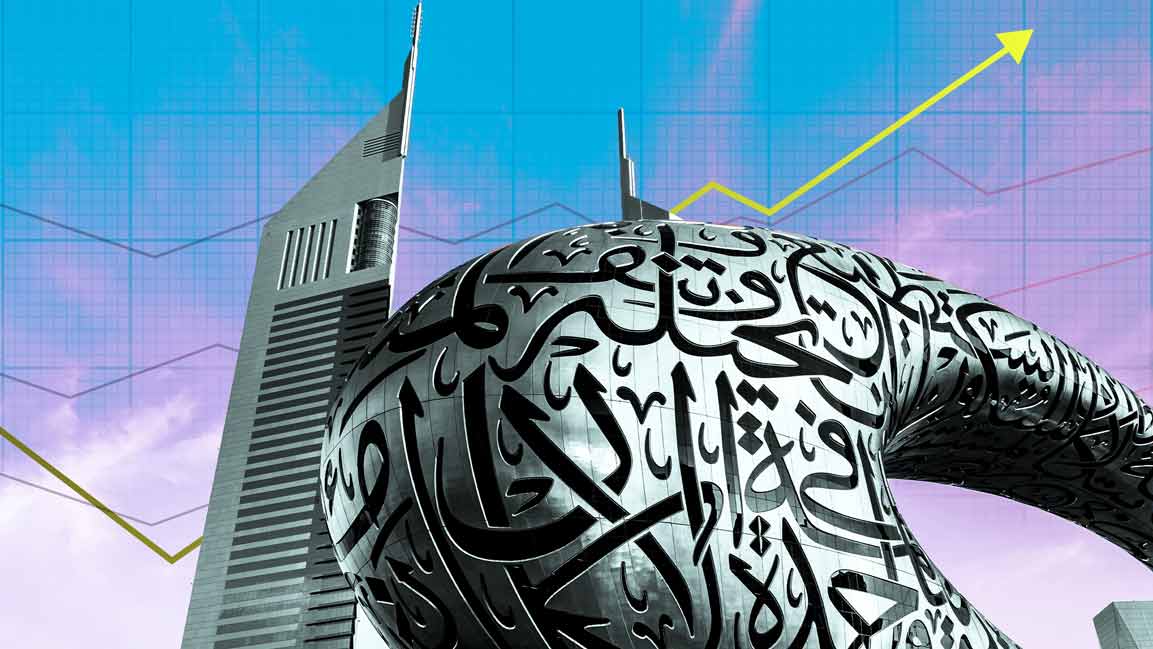✨ Introduction: A New Era for Gulf Investment
In a world beset by geopolitical tensions and economic unpredictability, the Gulf’s investment story shines bright. Kearney’s 2025 Foreign Direct Investment (FDI) Confidence Index positions the UAE at 9th globally and KSA at 13th — a clear signal of investor trust in the region’s economic potential. For Manika TaxWise, which guides investors through complex tax landscapes, these rankings are monumental.
This article explores why UAE and Saudi Arabia are fast-tracking global investment, examines the factors that underpin their appeal, and highlights valuable insights for international investors—tax strategies included.
Section 1: What Is the Kearney FDI Confidence Index?
-
Forward-looking survey: Based on January 2025 insights from 536 global corporate leaders (C‑level, regional heads; companies ≥ $500M revenue)
-
Investment intention gauge: Measures where firms intend to invest over the next three years—unlike traditional FDI data.
-
Global snapshot: Represents ~97% of world FDI flows
-
Top global markets (2025): USA, Canada, UK, Japan, Germany; UAE ranks 9th, KSA 13th
-
Emerging market highlights: UAE 2nd, Saudi 3rd—just behind China .
Section 2: Why UAE Is a Global Investment Magnet
1. Robust Economic Growth
-
Forecast GDP growth: 4.8% in 2025, 6.2% in 2026
-
Non-oil sector power: transport, construction, finance, real estate growth indicators at 5–10%
2. Strategic Infrastructure & Logistics
-
Project spotlight: Etihad Rail as a regional logistics backbone
-
Ports like Jebel Ali and Airports: global freight hubs.
3. Tech & Green Initiatives
-
National Investment Strategy 2031: targeting FDI from US $30B to US $65B; emphasis on industry, logistics, fintech, renewables, IT
-
Notable “NextGenFDI” scheme: simplified licensing, 100% foreign ownership, plus AI & climate-tech support
4. Investor-Friendly Policies
-
Zero income tax, investor visas, broad ownership rights, growing number of free zones.
-
Numerous CEPA deals to increase trade & investment
5. Investor Sentiment & Global Ranking
-
Net optimism index: +42%, a 4-point YoY rise
-
2023 FDI hit ~US $30.7B — +35% YoY
Section 3: What Drives KSA’s Rise in FDI Confidence
1. Vision 2030 Economic Transformation
-
Big investments under Project Transcendence: US $100B in AI ecosystem—data centres, talent, startups
-
New investment law granting equality to foreign and local investors
2. Steady Economic Growth
-
Non-oil FDI +10.4% in 2023
-
Net optimism index: +32%, reflecting strong investor belief
3. Expanding Finance & Banking Sector
-
Bank lending surged 16.3% YoY; corporate credit large at SR 387B in real estate, manufacturing, utilities
4. Regulatory & Infrastructure Reforms
-
Streamlined business setup, growth in digital transformation
-
Mega-projects (NEOM, Red Sea, Qiddiya) enhancing tourism & industrial landscapes.
5. Ranking & Global Perception
-
Moved to 13th globally, 3rd among emerging markets .
-
Recent quarterly FDI inflows jumped 37% in Q3 2024
Section 4: UAE vs KSA – Comparative Highlights
| Factor | UAE | KSA |
|---|---|---|
| FDI Rank 2025 | 9th global; 2nd emerging market | 13th global; 3rd emerging |
| GDP Growth Forecast | 4.8% (2025), 6.2% (2026) | ~5% non-oil growth, overall stable |
| Investor Optimism | +42% | +32% |
| Key Initiatives | Etihad Rail, NextGenFDI, CEPA, free zones | Vision 2030, Project Transcendence, new FDI law |
| FDI Inflow (latest) | US $30.7B (2023) | +10.4% non-oil FDI growth |
| Risk Profile | Lower—diversified, mature infrastructure | Higher—rapid change, tight oil dependency |
Section 5: Real-World Examples & Investor Case Studies
-
Tech Startup Hub: UAE incubators boost foreign firms in fintech, AI, space, biotech.
-
NEOM & Red Sea: Iconic KSA megaprojects highlight investor opportunity in tourism, real estate, aviation.
-
UAE Renewable Push: 138% surge in green-tech investment 2023–24
Section 6: Practical Tax & Investment Tips from Manika TaxWise
-
Tap tax incentives: zero personal income tax in UAE, evolving tax in KSA with exemptions for strategic zones.
-
Choose jurisdiction wisely: free zones often offer 0% corporate taxes, full repatriation.
-
Double Taxation Treaties (DTT): UAE has 100+; Saudi’s network expanding.
-
Transfer pricing readiness: key for multinationals—robust documentation essential.
-
Stay on VAT compliance: UAE at 5%, KSA at 15%; both require careful cross-border invoicing.
-
Plan for economic transitions: align with Vision 2030 in KSA or UAE 2031 for max incentives.
Section 7: Outlook & What Lies Ahead
-
Projected growth: IMF forecasts UAE GDP +5.1% in 2025
-
FDI resilience: Despite a global 11% dip, West Asia saw +4.7% FDI inflows
-
Greenfield boom: UAE retained 2nd spot globally for greenfield projects
-
Ongoing reforms: expect more liberal ownership, data laws, digital infrastructure investments.
✅ Conclusion: Gulf Rising as FDI Powerhouses
Kearney’s 2025 findings prove what investors already sense: UAE and KSA are not just oil exporters but future-focused economies with stability, innovation, and investment-friendly environments. From infrastructure megaprojects to tax reforms, the Gulf is reshaping global capital flows.
For your investments, it's wise to leverage Manika TaxWise’s expertise—structure entities strategically, harness free-zone incentives, and stay compliant while optimizing returns.
📌 FAQs
1. What is Kearney’s FDI Confidence Index?
A survey-based ranking of investor intentions over the next three years involving 536 global firms, representing ~97% of FDI flows
2. Why are UAE & KSA attracting investors?
Strong GDP growth, strategic infrastructure, investor‑friendly policies, tech and green initiatives, plus improved regulatory frameworks.
3. Will Gulf investment keep growing?
Yes—GDP forecasts are strong, FDI inflows rebounded despite global dip, and reforms are ongoing.
4. How should investors approach tax structuring?
Use free zones, understand VAT, TPD laws, DTT network, and watch evolving tax regimes in KSA and UAE.
5. Which country offers better FDI incentives?
UAE offers greater policy maturity and ease of establishment. KSA offers mega-project opportunities but with evolving regulations.

